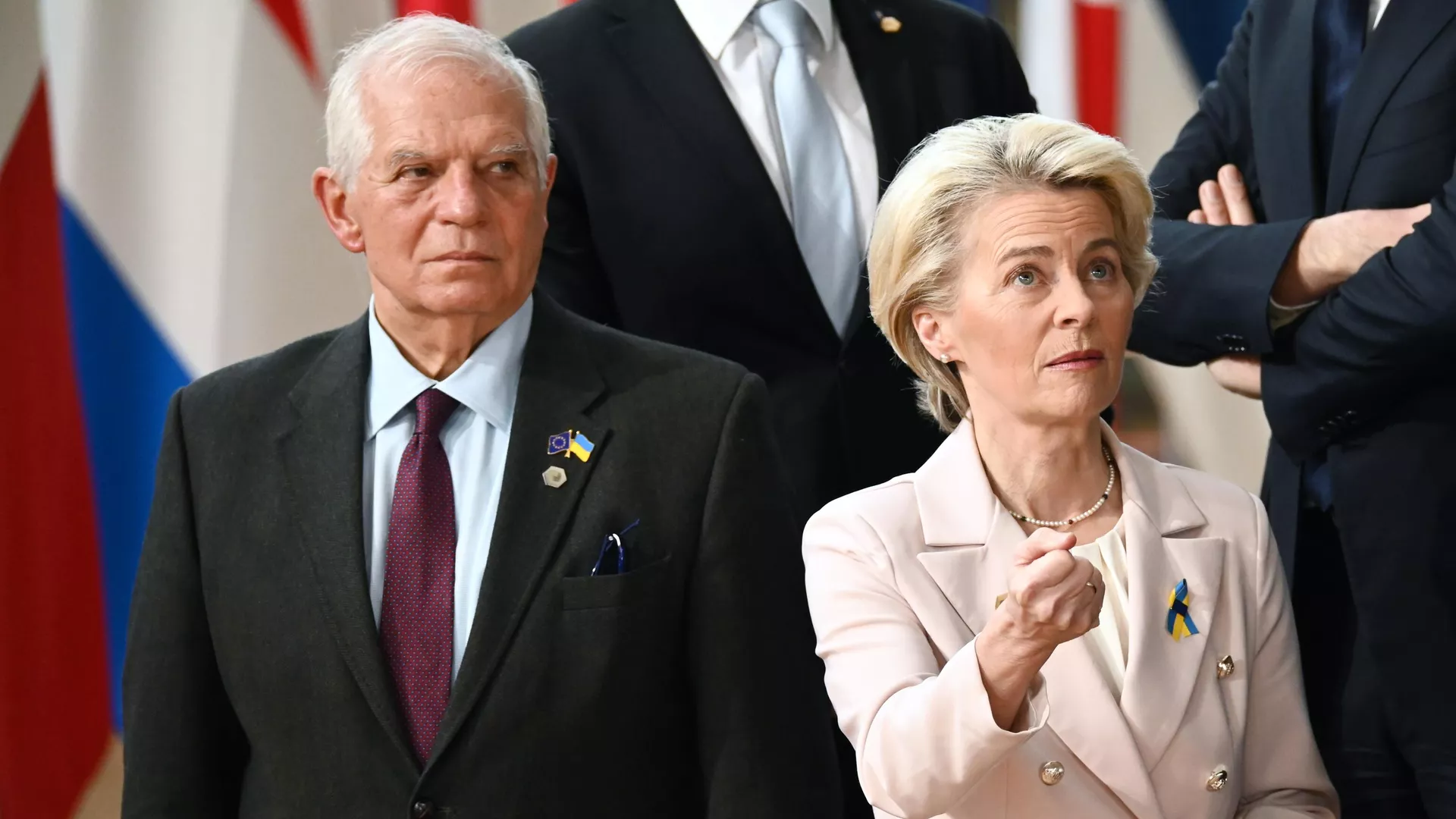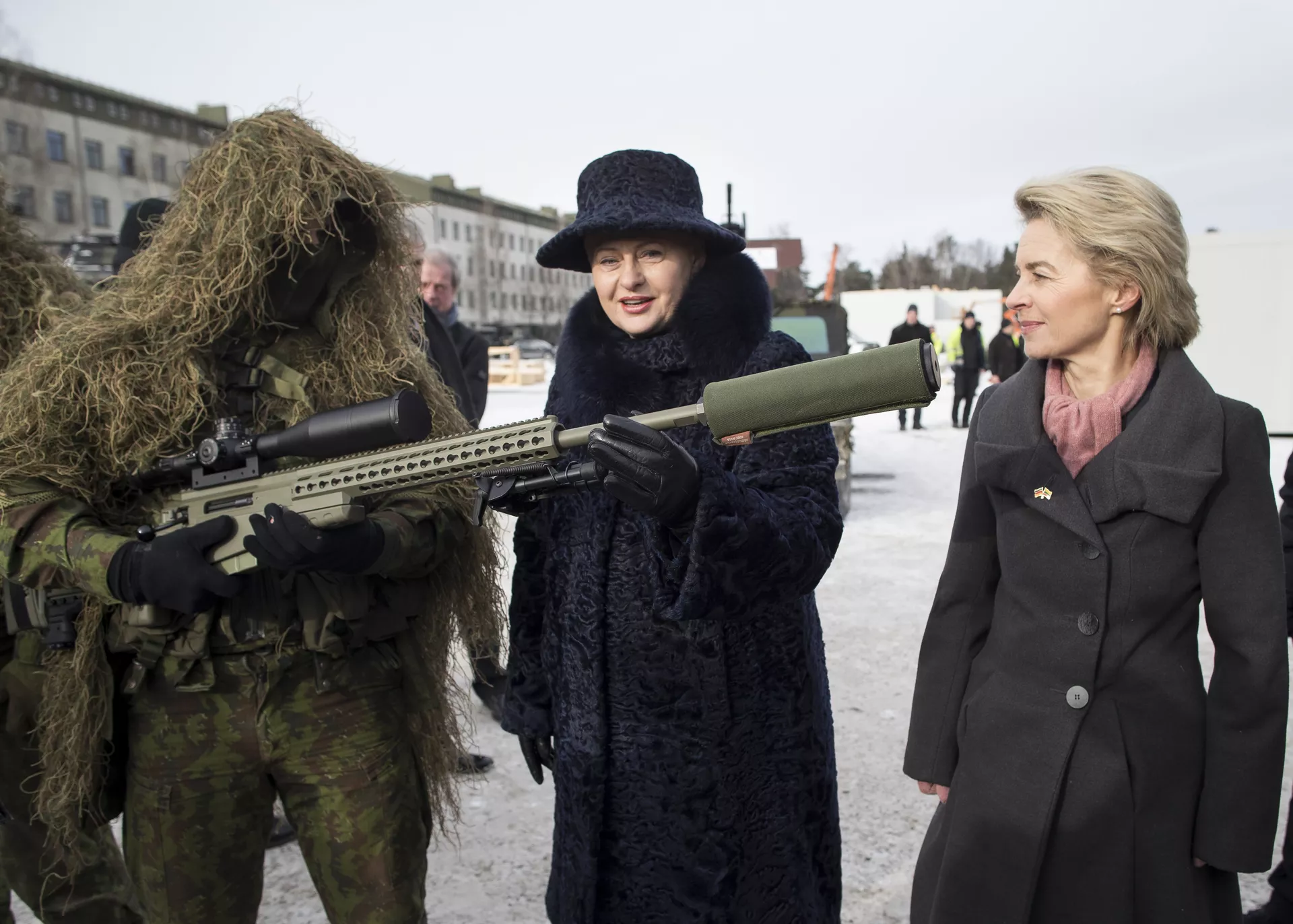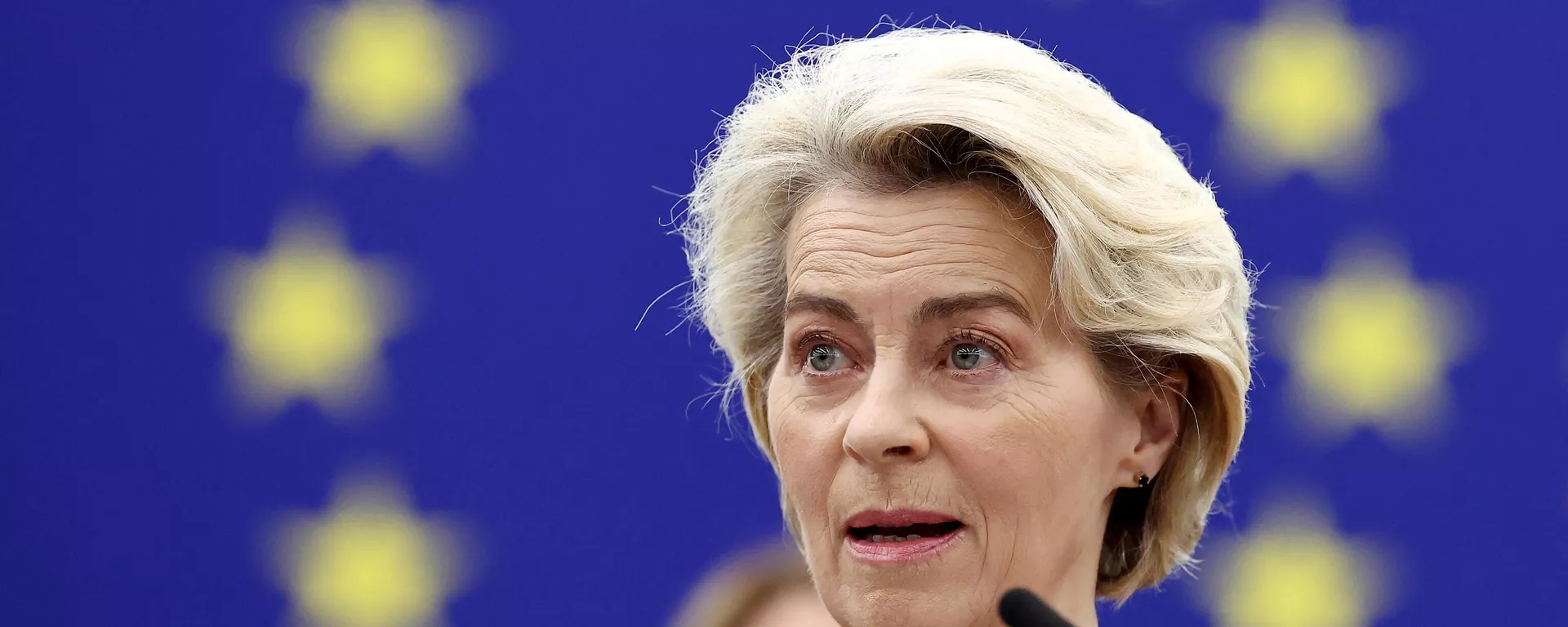Power Play: Von der Leyen Faces Showdown in EU Leadership Race

© Sputnik / Stringer
/ With the European Parliament (MEPs) elections taking place on June 6-9, the chances of the European Commission’s head Ursula von der Leyen keeping her job are slimming. Rising non-systemic right-wing mobilization may boost Eurosceptic MEPs, challenging von der Leyen's pro-American stance. Loss of support in the European Council adds to her woes.
On the eve of the Euroelections, Politico has published a story headlined “Charles Michel plots a revenge against Ursula von der Leyen.” The story attracted a lot of attention, since the position of the European Commission’s president is crucial. The president heads the whole executive branch of power inside the EU. But that is not all: only the commission and its head can present draft laws for the vote in the European Parliament, which gave von der Leyen (VDL) some legislative leverage, too.
During her mandate, VDL made several controversial steps, which make her, too, a divisive candidate. These steps included:
Invitation of embattled and impoverished Ukraine to the EU and a promise of speedy membership amid the protests in Poland and Rumania against cheap Ukrainian exports;
Non-collegial way of running EU policy, with even the EU’s foreign policy chief Josep Borrell telling El País* that “she should not take personal credit for all the successes of the European Commission”;
active lobbying of greater involvement of the EU in anti-Russian sanctions and of EU member countries in military aid to Ukraine, which led to protests from Hungary and the non-systemic right wing in France and Germany.
No wonder that news about von der Leyen having a powerful enemy in the person of Michel, the head of the European Council, attracted attention.
Gilbert Doctorow an international relations and Russian affairs analyst accused VDL of “usurping” power.
“The biggest usurper is, of course, the Commission’s president Ursula von der Leyen who has taken into her hands all manner of decision-making which under her predecessors was left to the [European] Council, meaning the heads of state acting together, or to individual EU member states,” he told Sputnik.“She must be turned out of office. But for this salutary change to happen, the rightist parties must achieve big results on June 9th.”
Elections as a Challenge
Several European media outlets have recalled that VDL became the president of the European Commission in 2019 in an undemocratic way, with Michel’s European Council involved.
As Germany’s Der Spiegel reported, von der Leyen did not win an honest vote in the newly elected European Parliament with many candidates running. Instead, her candidacy was “handpicked at a confidential meeting” of the European Council. An unelected institution, the European Council is a body that unites presidents and prime ministers of the EU’s member countries.
This time, von der Leyen, most likely, will have to go through a real election through the European Parliament, without the European Council throwing its weight behind her candidacy.
So, relying on its own calculations, Politico concludes in another headline, “Von der Leyen needs 361 votes to keep her job.”
But this is a tricky challenge.
The European Parliament has 720 seats and VDL is helped by the fact that alternative candidates for her job are relative “unknowns”, proposed by single factions inside the EP, and not by coalitions. The candidacy of Nicholas Schmit (Euro-commissioner, Luxemburg) was put forward by the faction of Socialists and Democrats (S&D, 136 expected mandates). The candidacy of Walter Baier (European Left party, Austria) was suggested by The Left faction (38 expected mandates).
The European People’s Party (EPP), which suggested VDL’s candidacy in the first place, is expected to get 170 mandates, according to the forecast provided by Europe Elects, a public service group.
That is a lot in comparison with other candidates, but it is not enough to secure von der Leyen the position of the European Commission’s president. Politico notes, that even in the case of VDL getting not only the support of EPP’s conservatives but also of the liberal Renew Europe and the mildly leftist S&D, that may still be not enough.
Formally, that would give VDL 390 votes, which is far more than the minimum of 360. But, Politico notes, “it’s likely that something over 10 percent of the lawmakers in each of these groups will either oppose von der Leyen or abstain on the big day.”
There are many ways in which von der Leyen antagonized the deputies from such parties as Poland’s PiS (a member of the European People’s Party faction) or Viktor Orban’s maverick Fidesz Party. PiS was subjected to constant pressure and had fines imposed on all of Poland by the EU because of that party's presumed “rule of law” violations. Whole Polish regions were hit by the EU’s sanctions. And Hungarian Fidesz was just arbitrarily expelled from the VDL-loyal EPP’s faction because of Orban’s independent position on migration, family politics and relations with Russia.
“It is highly likely that von der Leyen will lose her position as the Commission president. Not because of her policies with respect to Russia, regrettably, but because of her authoritarian, non-collegial manner of running the Commission,” Gilbert Doctorow noted.
Torn Between Meloni, Le Pen and 'Mainstream' Parties
The need to woo MEPs and members of the European Council at the same time will put VDL before hard choices.
For example, VDL may want to curry favor with Italy’s premier Georgia Meloni in order to get her support in Meloni’s capacity as the Italian prime minister and a member of the European Council. However, Meloni’s party Fratelli d’Italia is now trying to form a single faction in the European Parliament with France’s National Rally of Marine Le Pen and with Orban’s Fidesz.
At the same time, according to reports from The Guardian, VDL’s EPP is at loggerheads with Orban and Fidesz after EPP expelled Fidesz from its faction. And liberals and socialists do not want to support the president of EC who relies on the far right, namely, on Fratelli d’Italia and Le Pen’s National Rally, which S&D and liberal Renewal view as “extremist” and “pro-Russian.”

German Defense Minister Ursula von der Leyen, right, and Lithuania's Presidend Dalia Grybauskaite speaks with a soldier during the NATO enhanced forward presence battalion welcome ceremony at the Rukla military base some 130 km (80 miles) west of the capital Vilnius, Lithuania, Tuesday, Feb. 7, 2017
© AP Photo / Mindaugas Kulbis
So, VDL faces an uphill task. She must at the same time please Meloni and avoid antagonizing the mainstream parties – EPP, liberals and socialists. That will be hard to do, as many voters see the alternative, non-systemic right wing as the only defender of their countries’ sovereignty. Doctorow expects, for example, Le Pen’s National Rally to be “the big winner” of the coming elections.
Vain Expectations
But will the increase in voter support be translated into changes in policy? Most of the decisions at the EU level are not taken by the European Parliament, but rather by the VDL’s commission. So rapid change is not to be expected, said the political analyst.
“I am doubtful that the elections will bring any significant change in EU support for Ukraine. That will take a landslide victory by people similar minded to Le Pen, and there are not many such people inside or outside of the government elites,” Doctorow said. “The same may be said of the EU stand on defense, suicidal as it may be.”
Unfortunately, the winner in the race for the commission’s chairmanship will be determined not so much by a voter as by political horse-trading after the new European Parliament is elected.






Nessun commento:
Posta un commento